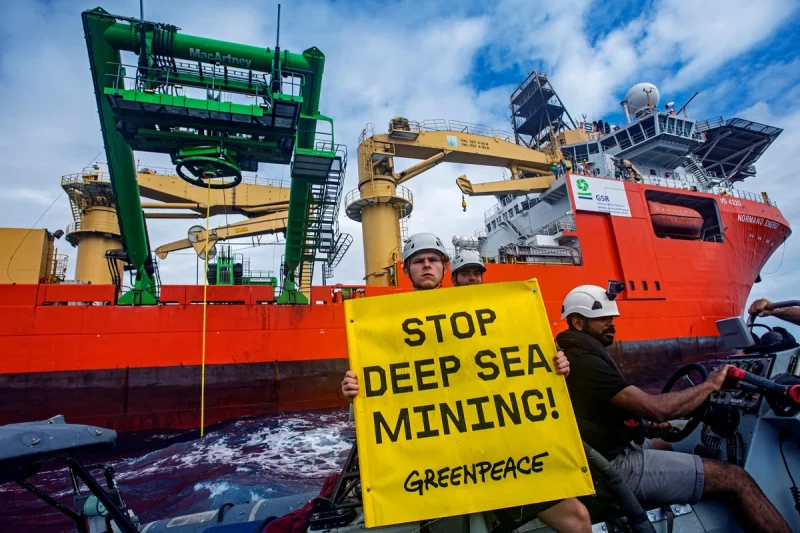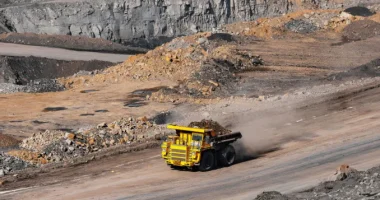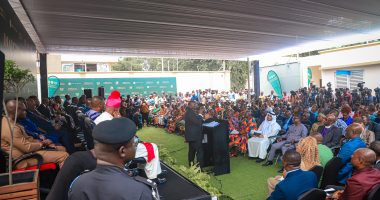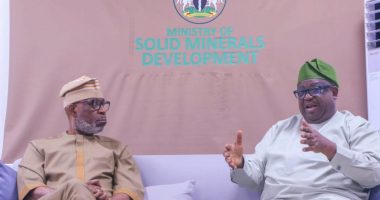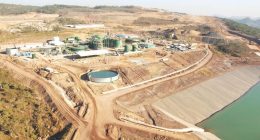Norwegian companies are eager to tap into mineral riches on the Arctic seabed, positioning the country to become the first in Europe to permit deep-sea mining — a prospect welcomed by industry players but fiercely opposed by environmental groups.
The industry, drawing from decades of experience in offshore oil and gas, had been poised for a breakthrough after Norway’s parliament overwhelmingly backed exploration. Early assessments confirmed significant deposits, and several start-ups were ready to commence operations.
However, momentum stalled in December when the government unexpectedly postponed the allocation of the first exploration licences, originally slated for 2025. The delay was part of a budget deal struck with a left-wing party, prompting dismay among those already investing in the sector.
“It was certainly a surprise and a disappointment… that a small party could sway budget negotiations and block something widely supported by parliament,” said Anette Broch Mathisen Tvedt, managing director of deep-sea mining firm Adepth.
Prime Minister Jonas Gahr Støre maintained that the move was merely a postponement, not a policy reversal. Licences are now expected to be issued in 2026 for areas in the Greenland and Norwegian Seas.
The altered timeline has had major consequences. Several small companies, often founded by entrepreneurs and staffed by just a few geologists, are now struggling. Loke Marine Minerals, which had ambitions of becoming a global leader, filed for bankruptcy last week. Green Minerals, another hopeful, has slashed its costs by 80 percent.
Despite the setback, Green Minerals CEO Øivind Dahl-Stamnes remained upbeat. “We’re just as ready as before to receive licences on the Norwegian continental shelf. We’ll be here for the long term,” he said.
Advocates argue that deep-sea mining is crucial for securing the rare metals and minerals needed to transition to clean energy, while reducing reliance on China, which currently dominates global supply chains.
“If we continue sourcing minerals the way we do now, then the green transition won’t be very green,” said Mathisen Tvedt.
Norway’s approach contrasts sharply with that of other European nations such as France, Germany and the UK, which have expressed reservations or outright opposition to seabed mining.
An official assessment in 2023 estimated Norway’s seabed holds 38 million tonnes of copper and 45 million tonnes of zinc, alongside significant deposits of rare earth minerals — essential components for renewable energy technologies and electric vehicles.

Environmental Alarm Bells Ring
At a recent industry gathering in Bergen, several mining executives indicated they hoped to begin extraction by the early 2030s — or even before 2030. However, their ambitions have sparked a backlash from environmental groups, who warn of irreversible damage to fragile and largely unexplored marine ecosystems.
Protesters handed out Greenpeace leaflets reading “Don’t gamble with the ocean!” outside the event.
“Deep-sea mining is a destructive industry that will ruin valuable and barely understood ecosystems for minerals we don’t even need for the green transition,” said Helene Bourges, global project leader at Greenpeace International.
Supporters of the industry argue that if deep-sea mining is inevitable, it should be led by a nation like Norway, known for high environmental standards.
“It’s better for a country like Norway to set the precedent and create a model for others,” said Egil Tjaland, secretary general of the Norwegian Forum for Marine Minerals. “This will happen globally — it’s just a matter of time.”
So far, conservationists have suffered setbacks in the courts. A lawsuit brought by WWF, claiming the government failed to conduct adequate impact assessments before opening up the seabed, was dismissed by an Oslo court in February. WWF has lodged an appeal.
“All industrial activity has an impact. The real question is where that impact is lowest,” said Dahl-Stamnes. “Is it 1,000 to 2,000 metres below the sea, or on land in traditional mines?”



